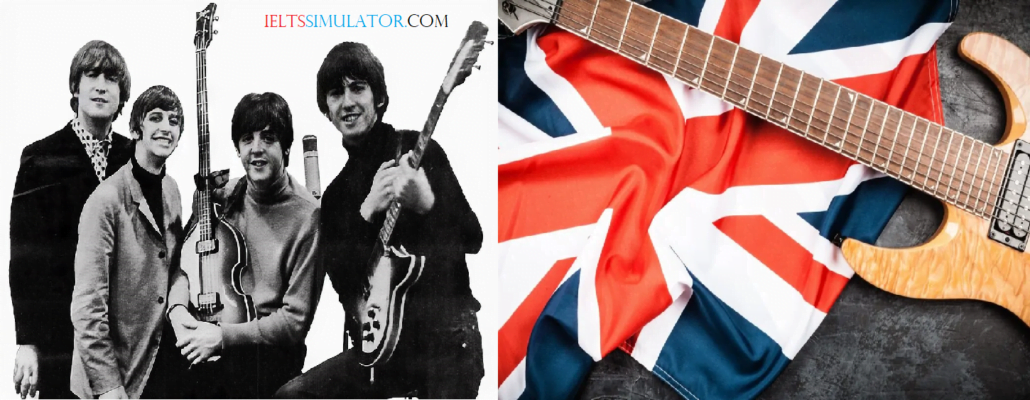
History of Music in Britain
Attempt full listening test…
Most people resided in small rural communities where their lives revolved around farming, life for the average person was difficult as incomes were meager and malnourishment and disease were common. Despite the difference in nationalities of the people and the variety of musical genres all of the music shared one common Q34 language English, as many were unable to write the songs were a means for the people to give voice to their experiences and feelings about their hard and laborious Q35 jobs, most of the music written by the workers during this period has been lost as a result of illiteracy and aware of time. Now you may be asking yourselves how these small musical works were formed. The roots of most of these groups can mostly be traced back to the younger members of the working classes, who were perhaps rebelling against the inferiority of their living and working conditions compared to those of the upper classes. Q36 Young performers would often lead these musical trends usually possessing a great talent for singing or playing particular handmade instruments. As time progressed into the 19th century these musical groups had gained much notoriety and would hold small performances in the street for all to watch. It was perhaps their blind optimism and rebellious spirit that led them to become so popular with their Q37 audiences. Which were usually made up of the poorest of the poor despite efforts by the Q38 upper classes to put an end to these musical traditions they continued to gain popularity and flourish. By the late 1870s, they had evolved past the barrier of the social echelons and gained access to the middle class.
Performances were held in proper establishments such as village halls and some were even ticketed with audiences paying a fee for the privilege of watching. Music produced by these groups were better recorded and some is still preserved today in museums. The music of these groups may not exist in the present day but its influences are still clear if you look closely enough, in Q39 classical culture for example many of the themes and theatrical performances are still based on the lives and experiences of the working classes both prior to and following the industrial revolution. The novel entitled les miserables by Viktor Hugo for example, is a novel about the French working classes and is still widely popular today.
The original Q40 recordings of the music written during these periods are now hugely valuable due to the demand from avid collectors and enthusiastic fans. Many of these recordings are publicly owned and displayed in museum exhibits. However, a selection are still privately owned and occasionally appear for sale in auctions. Often reaching prices in the hundreds of thousands. Well, that just about wraps the lecture up for today, so if anyone has any questions…